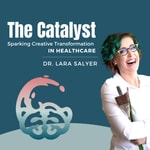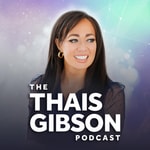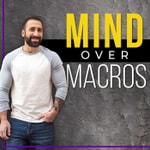The Catalyst: Sparking Creative Transformation in Healthcare – Détails, épisodes et analyse
Détails du podcast
Informations techniques et générales issues du flux RSS du podcast.

The Catalyst: Sparking Creative Transformation in Healthcare
Dr. Lara Salyer
Fréquence : 1 épisode/7j. Total Éps: 139

Classements récents
Dernières positions dans les classements Apple Podcasts et Spotify.
Apple Podcasts
🇨🇦 Canada - medicine
27/11/2024#66🇨🇦 Canada - medicine
02/11/2024#82
Spotify
Aucun classement récent disponible
Liens partagés entre épisodes et podcasts
Liens présents dans les descriptions d'épisodes et autres podcasts les utilisant également.
See all- http://hivecast.fm
673 partages
- https://kickstartaccountinginc.com/
170 partages
- https://drlarasalyer.com/
142 partages
- https://www.instagram.com/vitalityoet.stephanie
449 partages
- https://www.instagram.com/kickstartaccounting
227 partages
- https://www.instagram.com/drunachukwu
157 partages
- https://www.facebook.com/drlarasalyer
274 partages
- https://www.facebook.com/kickstartaccountinginc/
210 partages
- https://www.facebook.com/DrRomie
21 partages
Qualité et score du flux RSS
Évaluation technique de la qualité et de la structure du flux RSS.
See allScore global : 58%
Historique des publications
Répartition mensuelle des publications d'épisodes au fil des années.
What Kind of Healer Are You? How to Evolve Your Unique Self-Expression
Épisode 136
vendredi 1 novembre 2024 • Durée 27:47
“The secret to thriving is embracing change, not resisting it.” In this episode, I share how I made the shift from feeling burned out as a physician to finding success as an entrepreneur in functional medicine—all by learning to embrace change instead of fighting it. Being both a mom and a practitioner taught me to adapt and grow in ways I never expected.
To avoid burnout, it’s crucial to design a practice that evolves with you. I offer practical insights on how you can reflect on your values, lean into discomfort, and follow your curiosity to create a career that feels truly aligned and fulfilling. Whether you’re a healer, a business owner, or both, ask yourself—how can you create a professional life that not only supports your passion but also your well-being?
Through my mentorship and membership programs, I guide healthcare professionals to tap into their unique talents and deliver meaningful care without sacrificing themselves in the process.
This episode is for anyone looking to grow as a healer, an entrepreneur, or simply someone who wants to stay curious and evolve—both personally and professionally.
Quotes
- “The secret to thriving is embracing change, not resisting it.” (00:20 | Dr. Lara Salyer)
- “The best healers are those that continue to grow. If you remain static in the knowledge that you have, patience would eventually reach the ceiling of that knowledge, and you wouldn’t be serving your community to your best or highest attributes.” (07:23 | Dr. Lara Salyer)
- “Evolution is your strength. If you lean into it and do those three things, where you reflect regularly, you trust the discomfort, and then you lean into what you’re curious about, that can help unlock a different path that could lead to greater things.” (14:57 | Dr. Lara Salyer)
- “You need to design a career that evolves with you, that has that flexibility to bend and to expand and contract, one that reflects your unique skills and interests and passions.” (24:15 | Dr. Lara Salyer)
- “On the other side of change is always something more beautiful than you can ever imagine.” (26:15 | Dr. Lara Salyer)
Links
Book a Discovery Call: https://drlarasalyer.as.me/discovery
Infographics for purchase: https://drlarasalyer.com/shop/#Infographics
Connect with Dr. Lara Salyer:
Website: https://drlarasalyer.com
The Catalyst Way: https://drlarasalyer.com/catalyst
Instagram: @drlarasalyer
Facebook: https://www.facebook.com/drlarasalyer
Linked-In: https://www.linkedin.com/in/drlarasalyer/
YouTube: https://www.youtube.com/c/DrLaraSalyer
TikTok: @Creativity.Doctor
Podcast production and show notes provided by HiveCast.fm
The Call Is Coming From Inside the House: 5 Internal Boundaries You’re Neglecting
Épisode 135
vendredi 25 octobre 2024 • Durée 25:08
“Overcommitting and overworking won’t lead to more popularity or more business success. It just means you’re not discerning your internal boundaries well enough to give yourself that permission for space and time,” I share in this episode of The Catalyst. I’ve seen how neglecting those internal boundaries can fuel burnout and overwhelm, especially in high-pressure environments like healthcare.
When we push ourselves to overcommit and chase perfection, we end up ignoring our personal needs, and that’s actually blocking us from reaching a state of flow—a powerful state where we perform and feel our best. My advice? Set firm, clear boundaries. Embrace “good enough” instead of perfection. And don’t forget to prioritize self-care and creativity. When we’re mindful of these internal boundaries, we reduce stress, find better balance, and create space for flow, leading us to a more fulfilling, productive, and healthier life.
Quotes
- “When you’re doing something you love, it’s so easy to say yes… And so when we do this and we say yes all the time, we’re on that highway of burnout because as you’ll see with that practitioner I talked about, burnout is three things, depersonalization, low perceived achievement, and emotional exhaustion.” (06:27 | Dr. Lara Salyer)
- “Overcommitting, overworking does not lead to more popularity, to more business success. It just means that you’re not discerning your internal boundaries well enough to give yourself that permission of space and time.” (10:35 | Dr. Lara Salyer)
- “When you neglect basic needs like snacks, rest, that derails productivity… Your productivity will actually decrease the more you try to squeeze that lemonade out of that lemon. It isn’t going to work. You need to have these routine cadences of breaks for your self-care.” (13:24 | Dr. Lara Salyer)
- “Creativity is part of the divine connection we have. It is the art of medicine. It is the reason we are human beings, not human doings… Creativity isn’t just painting or drawing, writing, or dancing. Creativity is a relationship that you have with yourself. It is exploring what is curious to you.” (18:54 | Dr. Lara Salyer)
Links
Book a Discovery Call: https://drlarasalyer.as.me/discovery
Free Catalyst Calendar planner: https://healthinnate.activehosted.com/f/49
Past Episode referenced in this podcast: https://drlarasalyer.com/2024/03/01/episode-103-tips-on-turning-gratitude-into-greatfullness
Ads:
Shop https://drlarasalyer.com/shop.
Catalyst Reclamation Course https://rightbrainrescue.com/p/reclamation
Connect with Lara:
Website: https://drlarasalyer.com
The Catalyst Way: https://drlarasalyer.com/catalyst
Instagram: @drlarasalyer
Facebook: https://www.facebook.com/drlarasalyer
Linked-In: https://www.linkedin.com/in/drlarasalyer/
YouTube: https://www.youtube.com/c/DrLaraSalyer
TikTok: @Creativity.Doctor
Are You a Secret Entrepreneur?
Épisode 126
vendredi 16 août 2024 • Durée 47:09
“I had a great job. I loved it. I had great work hours. I had a great life balance. I had all of these things, but there has to be more,” says Dr. Nneka Unachukwu, also known as Dr. Una, the founder of EntreMD—a company that empowers physicians to build profitable businesses and reclaim their autonomy in the medical field. This week, Dr. Una sits down with Dr. Lara Salyer to share her journey from feeling unfulfilled in a traditional medical role to finding success as an entrepreneur. What does it take to step away from the conventional path? For Dr. Una, the realization that practicing medicine wasn’t enough sparked her exploration into entrepreneurship, leading to a career that’s not only more satisfying but also more impactful.
Dr. Una shares the challenges she faced while transitioning from clinician to entrepreneur, stressing the importance of acquiring business skills and adopting a new mindset to succeed outside the traditional medical system. She emphasizes the value of recognizing and leveraging the inherent skills physicians possess, such as communication, problem-solving, and content creation, which are crucial in the business world. Dr. Una also talks about building a personal brand and how physicians can use their expertise to create diverse career opportunities through consulting, speaking engagements, and other entrepreneurial ventures.
The episode goes beyond just personal stories, delving into the systemic issues within healthcare that often lead to physician burnout. Is it time for a shift towards a more holistic and self-expressive approach to medical practice? Dr. Salyer and Dr. Una think so. They advocate for designing a career that’s more like a “work-life masterpiece” rather than chasing the elusive work-life balance, encouraging physicians to align their careers with their personal values and passions.
Dr. Una’s insights serve as a guide for physicians who are curious about entrepreneurship but want to maintain their professional integrity and personal well-being. This episode of The Catalyst is a must-listen for anyone interested in how physicians can create meaningful change in their lives and the healthcare system by embracing entrepreneurial principles and reimagining their roles beyond traditional practice.
Quotes
• “The next evolution is to become an entrepreneur because opening a business does not make you an entrepreneur; there’s another evolution that’s required.” (10:22 | Dr. Nneka Unachukwu)
• “The question is then, can I have enough of an impact building a private practice, the system of it, that I can earn as much as I earn as a pediatrician taking care of patients? These are all things I started thinking about… We need to retool ourselves because what is coming requires us to negotiate, understand money, and build personal brands that will work. We need to be able to evolve and explore—all of us, right?” (13:56 | Dr. Nneka Unachukwu)
• “In the entrepreneurial world, we emphasize building your dream business and your dream life concurrently. The concept is that when you were in med school, you postponed your life. When you were in residency, you postponed your life. You started the dream job that you thought would give you back your life, and you had to postpone your life a little more. While you’re building the business, you’re building your dream life. You get better at building the business, and you get better at the dream life. They’re both twins; they’re growing together.” (17:30 | Dr. Nneka Unachukwu)
• “Every physician is an entrepreneur. You may be ignoring your business, but every physician is an entrepreneur. The reason I say that is because every physician has a business, and that is their personal brand. Everybody knows it’s a business except us.” (33:14 | Dr. Nneka Unachukwu)
Links
Connect with Nneka Unachukwu, M.D.: Website: www.entremd.com
Facebook: https://www.facebook.com/nneka.chinemeunachukwu
Instagram: https://www.instagram.com/drunachukwu
LinkedIn: https://www.linkedin.com/in/druna/
The EntreMD Podcast: https://entremd.buzzsprout.com
Connect with Lara:
Website: https://drlarasalyer.com
The Catalyst Way: https://drlarasalyer.com/catalyst
Instagram: @drlarasalyer
Facebook: https://www.facebook.com/drlarasalyer
Linked-In: https://www.linkedin.com/in/drlarasalyer/
YouTube: https://www.youtube.com/c/DrLaraSalyer
TikTok: @Creativity.Doctor
Colorful Tips to Take Control of Your Calendar and Stop Feeling Overwhelmed
Saison 1 · Épisode 36
vendredi 28 octobre 2022 • Durée 22:30
“When you learn how to use your own cadence appropriately, you understand your best hours of operation, and you arrange your calendar so that your deepest work occurs at your optimum time,” shares host Dr. Lara Salyer. If you have been getting overwhelmed by your schedule and your to-do list, you could be headed for burnout. Time management can seem intimidating to broach, but there actually are ways to bend time to better fit your needs.
We all have the same amount of time each day, so why do some people seem to be able to get so much more accomplished? Getting the most out of your time comes down to having time management systems in place and understanding your own natural rhythm. When you sit and plan ahead while also considering how your body best operates, it is possible to gain control of your time. Add anything on your to-do list to your calendar rather than complaining that you do not have enough time for it. When you optimize how you use your time, there is more space available for creativity and play.
You don’t have to be overwhelmed every time you look at your calendar or planner. When you learn to optimize your schedule to match the cadence of your body, you too can bend time. Tune into this week’s episode of The Catalyst to learn each step of Dr. Lara Salyer’s weekly planning method.
Quotes
• “When you say ‘I don't have time’ that is actually a false statement. Everybody has the same amount of time. It's not that you don't have time, it's that you aren't creating a space for it. It’s no longer a priority.” (2:28-2:44 | Lara)
• “When you learn how to use your own cadence appropriately, you understand your best hours of operation, and you can arrange your calendar so that your deepest work occurs at your optimum time.” (4:09-4:22 | Lara)
• “We can bend time and become more energized and powerful if we devote snippets of daily play and creativity in our life.” (5:23-5:33 | Lara)
• “Without putting things on the calendar, it's all a wish list. Your to-do list is really a wish list until you put it down in writing that you are going to sit with that task and do your best to finish it at that time on that day.” (20:34-20:48 | Lara)
• “It's not that we need more knowledge. It's that we need to take care of ourselves and learn how to apply our medical practices differently to keep up with the innovation that's happening in healthcare.” (22:07-22:18 | Lara)
Links
Download the Functional Micropractice Checklist here: https://healthinnate.activehosted.com/f/47
Get the Digital Planner: https://rightbrainrescue.com/p/planner
Become a Time Wizard: https://rightbrainrescue.com/p/timewizardry
Connect with Lara:
Website: https://drlarasalyer.com
Instagram: @drlarasalyer
Facebook: https://www.facebook.com/drlarasalyer
Linked-In: https://www.linkedin.com/in/drlarasalyer/
YouTube: https://www.youtube.com/c/DrLaraSalyer
TikTok: @Creativity.Doctor
The Bias of Tech
Saison 1 · Épisode 35
vendredi 21 octobre 2022 • Durée 43:25
“I just don't want people to be afraid of tech anymore. I think people are afraid of it, because they don't understand it,” shares Claire Cooper-Bodtke. Claire combined her more than a decade of experience in the private medical sector to co-found her company, Medi Cava. During her work with physicians, Claire realized that the demands placed on physicians to be the sole responsible party for their business were unsustainable and resulting in high rates of burnout. At Medi Cava, Claire assists physicians with putting technological systems in place that help to streamline their services, grow their business, and reduce the amount of extra jobs they have to do themselves so that they can focus on actually healing patients.
When Claire first meets with a client, she runs a gap analysis which essentially is a full tech audit that shows what is currently missing that the client needs for their business to run better. It is often helpful to start with the basics like creating a website where patients can book their own appointments or revisiting what type of software the client is using for customer relationship management. In addition to securing the basics, it can be fun to add in interactive opportunities like visual courses about functional medicine to engage patients and help get them to fully buy into the concepts for themselves. Tech can also be used to help track the lifestyle and buying behaviors of your patients so that you can attract similar patients to your practice.
When used properly, technology can really help to reduce your overall workload and make everything run much smoother. Many people are nervous about venturing into the tech space because they do not understand it, but with the right help it is very much doable and worthwhile in the long run. Tune into this week’s episode of The Catalyst to learn more about the bias of tech and how tech can help you to run your practice more effectively.
Quotes
• “I don't know who said that practitioners have to be the judge, jury, executioner and wear all the hats and do all the things, when there's really no other business model that makes them do that.” (5:19-5:33 | Claire)
• “Think about how much less money it costs to find the same person versus an entirely new person who's never heard of you. So when I tell people about referrals, they sort of think micro, right? So mom, dad, brother, sister. I’m telling you referrals of people that are like that person. Shop where they shop, workout where they work out, live where they live, drive what they drive. These are what we call psychographics of a human and their nature and how they buy. So buying behaviors, those are all things that you all have at your fingertips. And if you're using pieces of tech correctly, you can really hone in and find that very specific subset of patient that you want to continue working with.” (12:37-13:27 | Claire)
• “Use those visuals. Use those ways to help like you say gamify or make it more interactive. Make it something that you can actually do.” (36:28-36:37 | Claire)
• “I just don't want people to be afraid of tech anymore. I think people are afraid of it, because they don't understand it.” (16:26-16:33 | Claire)
• “You can use tech in the right way. It will not be scary, and if at any time you get scared and you don't want to do it anymore, there are people like us who can help you.” (40:01-40:10 | Claire)
Links
Connect with Claire Cooper-Bodtke:
Website: www.medicava.com
Instagram: @wearemedicava
Connect with Lara:
Website: https://drlarasalyer.com
Instagram: @drlarasalyer
Facebook: https://www.facebook.com/drlarasalyer
Linked-In: https://www.linkedin.com/in/drlarasalyer/
YouTube: https://www.youtube.com/c/DrLaraSalyer
TikTok: @Creativity.Doctor
Harnessing the Power of Joy for Hormones and Health
Saison 1 · Épisode 34
vendredi 14 octobre 2022 • Durée 42:07
“Joy can be so many different things. It can be very calm, it can be serene. That's what it is. It's an internal feeling. It's an internal state of being,” explains Saadia Mian, MD. Saadia works as a holistic endocrinologist, incorporating integrative and functional medicine into her practice to better serve her patients. She is an author and self-certified “joy expert”. Throughout her journey through medical school, Saadia realized that all of her time was being spent nurturing the left side of her brain and not enough time was being devoted to right brain activities like fostering creativity. During her leadership program, Saadia began to notice even more the importance of joy and listening to her heart. She started to increase joy by using mindfulness practices to slow down and appreciate the little things like enjoying a cup of tea or feeling the grass under her feet. In her books, she shares all that she has learned about the impact of joy on health and how to make joy your default state of being.
Chronic stress can have very negative impacts on health outcomes, because it causes perpetually heightened cortisol levels which throw all of our hormones for a loop. When hormones are impacted, the entire body is impacted. This can lead to all sorts of medical concerns from late periods, to weight gain, to increased risk of heart attack or stroke. Embracing joy is the best way to combat stress and help bring cortisol levels back down while also increasing happiness hormones like dopamine and serotonin. It can be difficult to always find joy, depending on your personal situations, so one way to start is to begin with gratitude. It is sometimes easier to find reasons to be grateful than to be joyful. From gratitude you can begin to work toward finding reasons for joy.
Joy can be a very powerful tool for combating the negative health impacts of chronic stress. By inserting more joy into our lives, we reduce cortisol levels which in turn helps even out the hormones in our bodies. Tune into this week’s episode of The Catalyst to learn more about how joy impacts hormones, the roles hormones play in overall health, and how to begin increasing joy in your own life.
Quotes
• “Joy can be so many different things. It can be very calm, it can be serene. That's what it is. It's an internal feeling. It's an internal state of being.” (11:14-11:24 | Saadia)
• “Small changes can have a big impact on every cell in our body. And yet, we can be resilient. We can train our bodies to be more resilient in the face of stress.” (14:24-14:37 | Saadia)
• “One of the things that actually brings me the most joy is when I see somebody's life has changed because of something that I've supported them with.” (21:51-22:00 | Saadia)
• “Joy is not only things that we perceive as happy-go-lucky, like lying on a beach sipping a drink, or being on vacation. We can also find joy in things that are challenging.” (22:14-22:30 | Saadia)
• “Set a timer and just see how many things you can immediately think of that bring you joy. And maybe after practicing gratitude later on, try it again and see if it has increased.” (38:22-38:33 | Saadia)
Links
Connect with Saadia Mian:
Websites: www.saadiamianmd.com, https://linktr.ee/saadiamianmd,
Instagram: @saadiamianmd
Connect with Lara:
Website: https://drlarasalyer.com
Instagram: @drlarasalyer
Facebook: https://www.facebook.com/drlarasalyer
Linked-In: https://www.linkedin.com/in/drlarasalyer/
YouTube: https://www.youtube.com/c/DrLaraSalyer
TikTok: @Creativity.Doctor
Cortisol, Boundaries, and Menopause...Oh My!
Saison 1 · Épisode 33
vendredi 7 octobre 2022 • Durée 38:59
“If you can create better boundaries to just slow down a little bit, it is crazy how everything else will feel so much more amazing,” shares Stephanie Fusnik, nutrition coach. Stephanie saw through her medical schooling and career that there were large gaps in the way the healthcare system approaches physical rehabilitation, chronic disease, and weight loss. In particular, her older female clients were struggling to lose weight or improve their health based on their doctor’s recommendations that were not taking into consideration the impact of hormones on metabolism. Stephanie soon realized that by teaching perimenopausal and menopausal women about the role of hormones like cortisol in their bodies, her clients finally saw noticeable results not only in weight loss, but also overall quality of life.
Once perimenopause and menopause begin, women’s bodies no longer can handle stress in the same way that they were able to before. Cortisol levels increase and stay high rather than returning to normal, because there is a lack of hormonal buffers like estrogen and progesterone that would typically help with controlling them. When cortisol levels are high, women experience increased brain fog, weight gain, digestive problems, and trouble sleeping. Learning to implement and uphold boundaries in order to reserve time and energy for yourself to not get overly stressed is pivotal for helping lower cortisol levels. With proper boundaries and an understanding of how hormones impact overall health and metabolism, it is possible to repair your relationship with your newly changed body.
Perimenopause and menopause cause large changes in the way women’s bodies work. The shifts in hormones cause increased cortisol, slower metabolism, and in turn an increase in a variety of other health issues. Tune into this week’s episode of The Catalyst to learn more about the impact of menopause on the body, why boundaries are so important for overall health, and how nutrition plays a role in managing hormones.
Quotes
• “There's not enough information on this out there because lots of studies are done on men, and the whole fasting thing, and not eating your carbs, and eating low calorie, and those things don't work anymore.” (5:04-5:13 | Stephanie)
• “To dismiss someone's health concerns is one of the most disrespectful things you could ever do.” (7:25-7:29 | Stephanie)
• “Stress is stress. And you get the same response whether it's good or bad, your body doesn't give a shit. So then we go through these hormonal changes. And typically before, we can handle it okay, because we have hormonal buffers like estrogen, progesterone, they all help us deal with that kind of stuff. As soon as we go through peri-menopause, and menopause, and those things drop, our body cannot handle that stress anymore.” (10:13-10:34 | Stephanie)
• “If you can create better boundaries to just slow down a little bit, it is crazy how everything else will feel so much more amazing.” (15:56-16:04 | Stephanie)
• “You're supposed to be selfish in certain aspects of your life. If you're not taking care of yourself, or doing things that you love, and you're not happy, that will bleed into all your relationships.” (17:15-17:24 | Stephanie)
• “Just because you're not scheduled for something doesn't mean you're available.” (19:53-19:57 | Stephanie)
Links
Connect with Stephanie Fusnik:
Website: www.vitalityosteopathicandexercisetherapy.com
Tiktok: vitalityoet.stephanie
FB: Stephanie Fusnik
FB Group: Metabolism and Menopause by Vitality - Secrets for Fat Loss
Instagram: vitalityoet.stephanie
Connect with Lara:
Website: https://drlarasalyer.com
Instagram: @drlarasalyer
Facebook: https://www.facebook.com/drlarasalyer
Linked-In: https://www.linkedin.com/in/drlarasalyer/
YouTube: https://www.youtube.com/c/DrLaraSalyer
TikTok: @Creativity.Doctor
How Codependent Thinking Might Be Hurting Your Practice
Saison 1 · Épisode 32
vendredi 30 septembre 2022 • Durée 43:37
“I define codependent thinking as a mindset and a somatic way of relating to the world in which we chronically, unintentionally, and habitually source our sense of wellness, worth, and value from everything in the world other than ourselves,” explains Victoria Albina, Master Certified Somatic Life Coach, Nurse Practitioner, Meditation Guide, and Host of The Feminist Wellness podcast with over 20 years of experience working in health and wellness. When working as a nurse practitioner primarily in gastroenterology, Victoria realized there was a deeper root cause beneath what she was seeing on the GI map, and that was a lack of embodiment and a need for a mindset shift. She realized that many people are living with a codependent and scarcity mindset rather than being able to uphold healthy boundaries that bring the nervous system back into a state of safety.
When people are born, they are inherently aware of their own needs and are not shy in the least about asking for them. However, that all changes as we grow up and the opinions of others supersede what we know is best for our own bodies. When people are socialized to be codependent in the way that causes them to find the entirety of their self worth and validation from external sources, they tend to neglect their own needs and struggle with setting boundaries. Our inner-child lives inside our nervous systems and causes our bodies to react in ways based on past experiences. If medical professionals do not shift their mindsets away from codependent thinking, their practices and patients will suffer. Having good boundaries is good for both the physicians and their patients because it helps develop respect and trust.
Codependent thinking can be a root cause of many health concerns. The best solution is to start retraining your body to respect necessary boundaries and learn to find a sense of self worth internally rather than relying on external sources. Tune into this week’s episode of The Catalyst to learn more about how codependent thinking can cause your nervous system to get stuck in a pattern of tension that can lead to burnout, gastrointestinal problems, and more.
Quotes
• “What I was really seeing as the root cause underneath the blastocysts, under the pylori, under the gut microbe, under what I saw on the GI map, was mindset and a lack of embodiment.” (4:38-4:51 | Victoria)
• “When your life is constant lions on the savanna of this time, how can the gut function? How can the thyroid function? How can we have a healthy menstrual cycle? It is not possible when you live in tension.” (8:12-8:33 | Victoria)
• “I define codependent thinking as a mindset and a somatic way of relating to the world in which we chronically, unintentionally, and habitually source our sense of wellness, worth, and value from everything in the world other than ourselves.” (17:16-17:38 | Victoria)
• “Boundaries show us where we begin and someone else ends. And where someone else ends and we begin. It's the space where I have control over my human animal and nothing else on this planet. And I get to voice what works for me and control me and only me. So I teach that we voice boundaries as, if you do X, I will do Y.” (20:31-20:58 | Victoria)
• “Our inner child can be our most loving and valiant supporters. They can really have our backs. They can encourage us to make art, and to play, and to dance, and to sing and to be loving.” (29:39-29:50 | Victoria)
Links
Connect with Victoria Albina:
Website: https://victoriaalbina.com/
Instagram: https://www.instagram.com/victoriaalbinawellness/
Facebook: https://www.facebook.com/VictoriaAlbinaWellness/
YouTube: https://www.youtube.com/channel/UCBLzfjuuMedG9JtZlzd_JfA
Connect with Lara:
Website: https://drlarasalyer.com
Instagram: @drlarasalyer
Facebook: https://www.facebook.com/drlarasalyer
Linked-In: https://www.linkedin.com/in/drlarasalyer/
YouTube: https://www.youtube.com/c/DrLaraSalyer
TikTok: @Creativity.Doctor
How Culinary Medicine is Vital to Transforming Health and Outcomes
Saison 1 · Épisode 31
vendredi 23 septembre 2022 • Durée 42:07
“I really need to understand how food is impacting the Krebs cycle and methylation and all that. So that's where culinary medicine can get a little bit more scientific versus just looking at it from a macro point of view,” explains Shefaly Ravula, PA-C. Shefaly spent 20 years as a board certified physician’s assistant and then shifted over into the functional medicine world. After her father, who seemed outwardly healthy, suffered a heart attack, Shefaly realized she needed to learn a lot more about nutrition and the impact on cardiovascular health. Now, she has her own telehealth practice, Precision Metabolic Health, where she uses culinary medicine to improve her patients’ digestive and metabolic health. She also launched the Food Is Medicine Academy which is available to the public and provides educational resources about culinary medicine.
Having an understanding of the way nutrition impacts the body can help influence dramatic changes in a patient’s overall health and wellness. Nutrition has a large impact on the Krebs cycle and methylation. It impacts metabolic processes, our gastrointestinal health and cardiovascular health, yet often it is neglected in Western medicine. Ancient cultures used to view food as medicine and in other parts of the world it is still viewed that way, but in the Western world we have moved away from that. However, food still can be medicine and can be integrated together with Western medicine to create better health outcomes.
Culinary medicine is a scientific way of looking at how food and overall nutrition impact the processes in the body. Although culinary medicine is not a replacement for traditional medicine, it can improve health and wellness outcomes when combined with Western medicine. Tune into this week’s episode of The Catalyst to learn more about how nutrition plays a role in metabolic function, cardiovascular health, digestive health, and virtually every aspect of our bodies.
Quotes
• “I really need to understand how food is impacting the Krebs cycle and methylation and all that. So that's where culinary medicine can get a little bit more scientific versus just looking at it from a macro point of view.” (8:21-8:34 | Shefaly)
• “It's not just protein, carbs, fats, fiber that I'm looking at. It's a much deeper level. And so my Food Is Medicine Academy gets into the science piece of it a little bit more than just going to maybe a regular dietitian and saying, ‘help me lose weight’.” (8:35-8:53 | Shefaly)
• “I love data, data drives behavior change big time.” (17:46-17:49 | Shefaly)
• “If we at least shift the mindset, I think that they start thinking that way and realizing the importance of how much time it takes to do self work.” (23:08-23:20 | Shefaly)
• “I think food is medicine, and it can heal you and be a source of vitality, and energy, and vigor and health to some degree. However, it's not going to be the end all be all. You still need western medicine in some cases.” (31:33-31:55 | Shefaly)
Links
Connect with Shefaly Ravula:
Websites: https://precisionmetabolichealth.com/ and also https://course.shefskitchen.com/
Twitter : @precisionmetab and @shefskitchen;
Instagram @precisionmetabolichealth and @shefskitchen
Linked-In: Precision Metabolic Health
FB: https://www.facebook.com/groups/culinarymed and also https://www.facebook.com/precisionmetabolic/
Connect with Lara:
Website: https://drlarasalyer.com
Instagram: @drlarasalyer
Facebook: https://www.facebook.com/drlarasalyer
Linked-In: https://www.linkedin.com/in/drlarasalyer/
YouTube: https://www.youtube.com/c/DrLaraSalyer
TikTok: @Creativity.Doctor
Become the SHEO of Your Health
Saison 1 · Épisode 30
vendredi 16 septembre 2022 • Durée 41:23
“I ultimately feel like doctors should be judged by how we get people off medications,” explains Jennifer Roelands, MD. Jennifer is the CEO and Founder of Well Woman MD. As an OBGYN with integrative medicine training and over a decade of women’s health experience, Jennifer is a catalyst for change within the healthcare community. She believes that women’s health requires a team based, integrative approach in order to really help the patient to the fullest extent and she is working to provide this model in her clinic.
When Jennifer was trying to conceive her second child, she found out that her fertility was being impacted by both PCOS (Polycystic Ovarian Syndrome) and Hashimotos Disease. To her dismay, her trusted OBGYN had nothing to offer her aside from birth control pills and a slew of other medications to counteract the side effects of the birth control pills. She realized there had to be a better way and this encouraged her to begin taking her health into her own hands by learning more about integrative medicine and really diving into information about nutrition and thyroid function. She discovered that main drivers of symptoms for PCOS are inflammation, insulin resistance, and gut health. And through that discovery, Jennifer was able to modify her diet and habits to improve her symptoms and heal her body all without the pill. Now, she uses what she has learned to help women get off of that endless carousel of medications and regain control over their own health.
Just because healthcare has been handled one way for a long time does not mean it is necessarily the best way of doing things. Tune into this week’s episode of The Catalyst to learn more about how to take control of your own health. Learn about the importance of nutrition, hormones, gut health, and how having an integrative team approach can make a huge difference in your health outcomes.
Quotes
• “I ultimately feel like doctors should be judged by how we get people off medications. We should be judged by that, not judged by how many people we can see in 10 minutes.” (7:40-7:52 | Jennifer)
• “I think with PCOS, for me, it's a matter of trying to teach someone how to understand their body much better and understand their health and how my PCOS is different than your PCOS. So therefore, you need to focus on these particular aspects.” (11:43-11:56 | Jennifer)
• “If I can revamp or reimagine women's health, I would basically want it to be an integrative team. So I think that health care for women needs to be a team approach. We need to be able to take care of a patient. Here's your doctor, here's your nutritionist, here's your acupuncturist. Here's your health coach, here's your trainer, it needs to be this approach where we're basically a team to help someone.” (21:28-21:56 | Jennifer)
• “The patients want this kind of approach, we just need to learn to deliver it in a better model.” (23:25-23:32 | Jennifer)
Links
Connect with Jennifer Roelands:
Website: https://www.wellwomanmd.com
Instagram: @wellwomanmd (https://www.instagram.com/wellwomanmd/)
Connect with Lara:
Website: https://drlarasalyer.com
Instagram: @drlarasalyer
Facebook: https://www.facebook.com/drlarasalyer
Linked-In: https://www.linkedin.com/in/drlarasalyer/
YouTube: https://www.youtube.com/c/DrLaraSalyer
TikTok: @Creativity.Doctor









